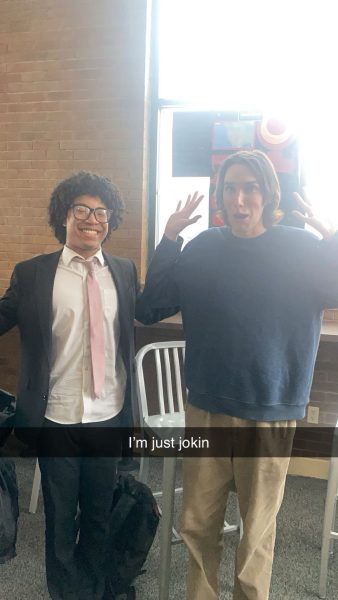McDonalds & the Downfall of Culture
Ray Kroc, who once sold milkshake mixers to different restaurants, bought McDonald’s from the McDonald brothers for 2.7 million dollars. After tax, that would leave each brother with one million dollars. In no way should Ray be considered a founder. He piggybacked off the fast-food creativity of the McDonald brothers and used his experience in business to exploit what made it great: speed and consistency.
In his time, the late 50s to early 60s, there was a problem with franchising: the menu would never remain consistent between locations. Franchisees were usually rich people that thought they needed to appeal to local demographics, and their menu would change accordingly. But Ray thought of a solution to that. He started to buy the land beneath the franchise, and would tax the unruly franchisees. They started to obey after that.
What Ray had created was a homogenous blob of establishments that now dot the United States. Ray had the genius to understand that people find comfort in consistency. The exchange for consistency was quality and culture. Chicken nuggets are engineered to last a century before decomposing, and you can taste that. No longer are menus treated as individuals best suited for their environments, just a part of a chain.
Ray died in 1984 of a stroke. But, his business lives on. All quality has been traded for consistency, and from this mindset, the 80s were born. An era that desired uniformity in people. Corporations wanted it, so the people wanted it, and this change could be seen in the music and the clothing, and the people. The only enemy we had at that time were the Commies. These people thought different. They disrupted uniformity, and so the us versus them mentality fed the Cold War.
The Soviet Union fell a year after its first Mcdonald’s opened in 1990.
Music wasn’t all that great in the 90s. It was mostly trashy pop-rock–a boring, formulaic genre. A product of the fast-food culture. Then, in 1991, after releasing a commercial flop called Bleach in 1989, Nirvana released Nevermind, which I believe to be the greatest piece of counter-culture besides, maybe, Martin Luther nailing his 95 Theses to the door of the All Saints’ Church.
From the cover alone (which I cannot show you, but I encourage you to look at), the listener could ascertain Nevermind’s tone. It wasn’t just a punk-rock album. It was grunge! And grunge isn’t just a genre it’s a statement, man! A statement helmed by Nirvana’s leading man, Kurt Cobain.
In the rise of the mass-production of media, here comes this guy that breaks the musical mold with this strange sound and lyrics that don’t mean anything. Nirvana was so great because you didn’t need to understand it. It was one size fits all rage, and that is just what the world needed: an outlet for the aggression against the man. Against uniformity.
In 1994, shortly after the release of Nirvana’s best and final album, In Utero, Kurt Cobain killed himself. Nirvana stopped producing music after that.
Much later, I was born, and further along that line, I read an article in Esquire called “Cobain-Worthy Cardigans.” And in this article, I found a morbid truth: that no one really cares about Cobain. We’ve cast him in gold. A member of the 27-Club, a wearer of cardigans and cat-eyed glasses, and the victim of a conspiracy theory that accuses Cobain’s wife, Courtney Love, of murdering her husband.
The fast-food culture that Ray Kroc created had absorbed Cobain into that icon culture. The notion that our idols should be distilled into digestible tablets of pop culture. Our idols, like our chicken nuggets and Big Macs, are designed to survive nuclear annihilation. No, that’s not what Cobain was. Cobain was a man. An addict, a depressive, but a revolutionary nevertheless. Now, pop culture is a fad controlled by big corporations designed to please everyone, so it no longer has substance.
Grunge is now an aesthetic. Ripped jeans and loud rock–practically the same group as Billie Eilish, who is in no way revolutionary.
I was reading a book by John Steinbeck, one of the finest American writers, titled Travels with Charley in Search of America, and I found this quote. “Of course the deep south holds on by main strength to its regional expressions, just as it holds and treasures some other anachronisms, but no region can hold out for long against the highway, the high-tension line, and the national television. What I am mourning is perhaps not worth saving, but I regret its loss nevertheless.”
John was talking about accents in that passage, and how the TV is creating a homogenous American accent. This is how I see culture. Maybe I am just an old man fronting as an angsty teenager, and maybe this whole dilution of pop culture doesn’t matter. After all, there are far more important conversations to have when it comes to the sake of humanity. But I regret its loss nevertheless.







